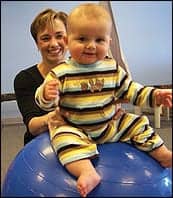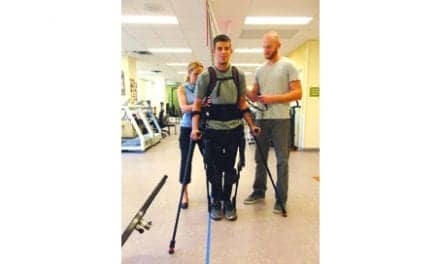The Washington, DC-based Wounded Warrior Project (WWP) reports it has marked the 5-year anniversary of the passage of the Caregiver Assistance Law of 2010. The organization describes the decision as “landmark legislation” that recognizes the physical, emotional, or financial risk of caregiving can overwhelm caregivers and result in unwanted, and very costly, institutionalization for the injured veteran to whom they provide care.
According to a media release from WWP, the organization notes that it specifically advocated for a program that would provide caregivers with needed training, technical support, mental health counseling, health care coverage, respite care, and a modest financial stipend. Furthermore, the WWP reports, the Caregiver Assistance Law established the framework for the Department of Veterans Affairs’ (VA) Caregiver Program, which now provides critical services and support to over 19,000 caregivers of injured veterans.
“In working daily with injured veterans, WWP continues to see firsthand how profoundly a warrior’s injury changes an entire family’s life, and how heavy a toll the lack of assistance can take on caregivers,” says Jeremy Chwat, chief program officer at WWP. “The Caregiver Program was a critically needed step towards easing the burden of caring for seriously injured warriors, but the long-standing issues that continue to plague the program remind us that our work is far from complete.”
In testimony before the Committees on Veterans Affairs for the Senate and the House of Representatives earlier this year, WWP repots that it asked the VA to resolve the long-standing issues with VA’s implementation of the Caregiver Program. It also asked to ease the Veterans Benefits Administration’s (VBA) reporting and oversight requirements on caregivers who are also fiduciaries for their loved ones.
According to the WWP’s media release, Since 2010, the organization has been using the information gathered from its Annual Alumni Survey to refine its existing programs, develop new initiatives, identify gaps in existing services and support, and create and advocate for legislation that positively impacts warriors and their families. According to the release this year’s data shows 3 out of 10 warriors need the aid and attendance of another person because of their injuries and health problems; among them, more than one-fourth need more than 40 hours of aid per week. The results are also said to show 43.2% of warriors reported having a traumatic brain injury and 75% reported experiencing post-traumatic stress disorder (PTSD).
[Source: Wounded Warrior Project]






